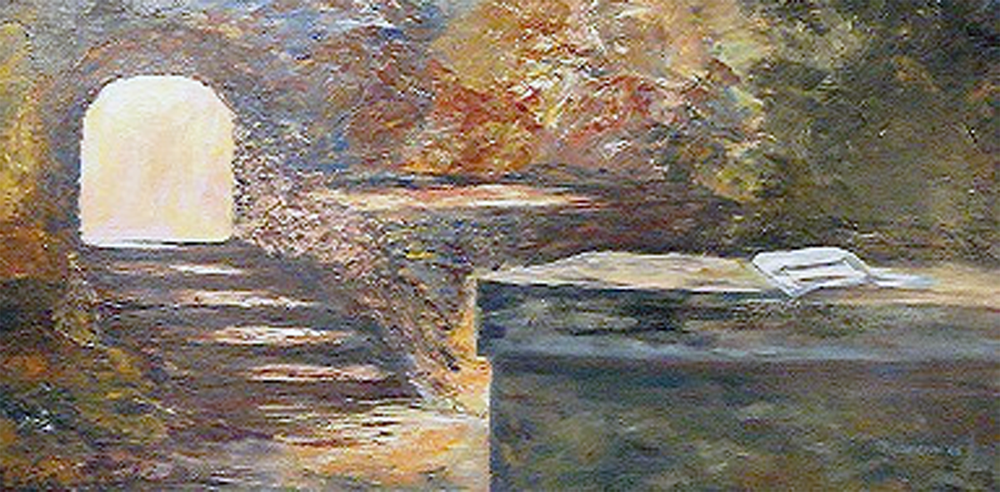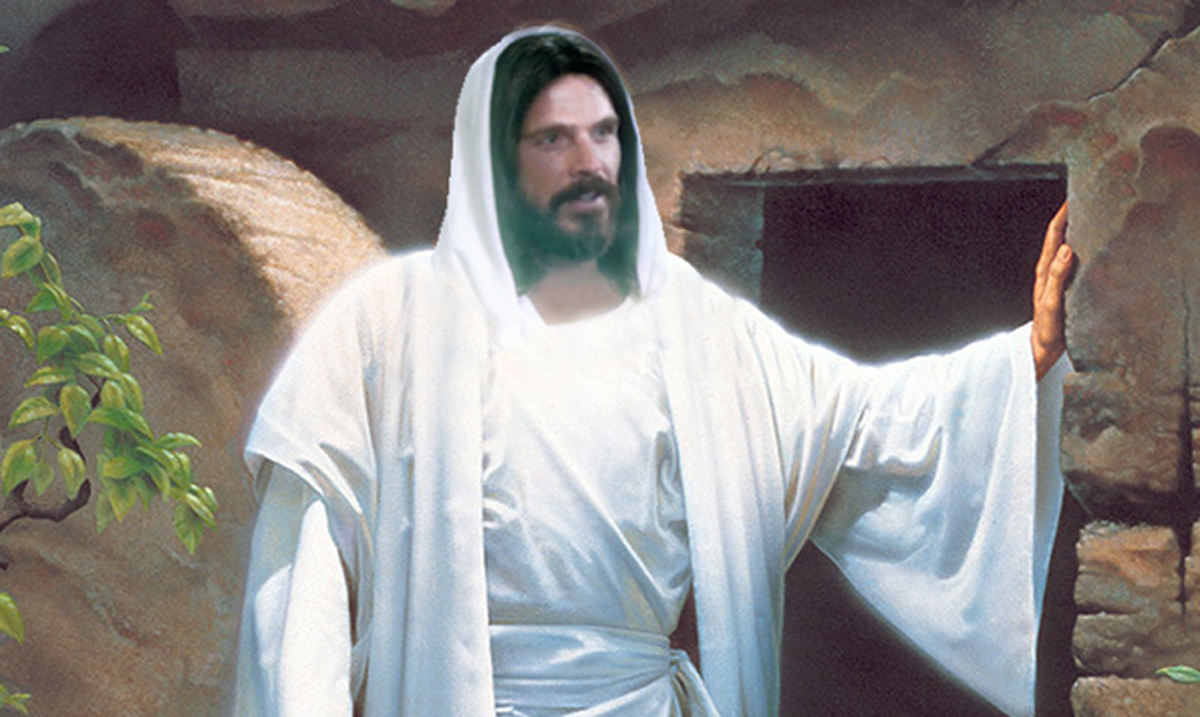There Is No One There, The Tomb Is Empty…
It had been an exhausting day for the master of the house. Being a prominent leader among the aristocracy of the Roman Empire he spent most of his time dealing with issues that required political debate. This day had been a particularly draining because of the heated debate with some prominent Jewish leaders. They wanted to put a man to death; not for justice but for political gain. It was now up to him to determine the ultimate fate of a man that faced a hideous death by Crucifixion. His final decision was….
Now exhausted from arguing, he was looking forward to a quiet evening at home and sharing a late afternoon meal with his family.
His servants, who were slaves, considered it a privilege to be under his rule. Even though he was demanding, he was also unusually fair, kind and considerate. He never beat, or as some had, even put to death a slave servant for a minor infraction of protocol. His thoughtfulness had gained the love, admiration and respect of his entire household. For under his rule they all felt safe and secure.
He no sooner sat down at the table than his servants hovered around him like worker bees attending to the needs of the queen bee. They catered to his every whim, making sure his plate we continually full of the finest food, and repeatedly refreshed his goblet with his favorite beverage.
As the meal progressed, they stood silently off to the side, watching, waiting for the slightest gesture or movement of his hand; it was then a servant would immediately respond. And of course, it was inevitable that a signal would be misinterpreted causing a moment of unimaginable stress…then the master of the house would erupt in roaring laughter which was contagious and filled the room with a lighthearted atmosphere.
Now in the middle of dinner their master hesitated, he folded his napkin and without a word abruptly walked away from the table…all the servants stood there, silent, they did not move or budge an inch even though the master was gone.
Why you may wonder; they hesitated to clean the table off and put the food away? The answer to that question is rather simple. It was a common custom in those days, if the master of the house folded his napkin; it was a sign for the servants not to touch anything because he was going to return. Had he crumpled the napkin, this would indicate he was finished, and would not be coming back. It was then the servants went into action to immediately clear the table and put the remaining food away (or in some cases, the servants would share the remaining food among themselves).
Yes, it is an interesting bit of trivia. However, what relevance does it have for us today, if any? In addition, what does it have to do with Resurrection Sunday (Easter)?
Here is where the story takes on some very interesting and significant meaning.
It is a well-documented historical fact that Jesus lived. Only the most foolish and arrogant of scholars would deny His existence. Historians also acknowledge that He took a horrible beating (far, far more than what most people perceive). The Romans were experts at torture; after beating Him unmercifully they nailed Him to a cross to die a most hideous and agonizing death. He suffered beyond our comprehension until one Roman soldier ended it with a spear to His side.
Upon His death He was then placed in a tomb…then the most amazing event occurred…three days later the tomb was empty (He had risen)…well not completely empty…His disciples found what remained; the burial garment, and napkin that had covered our Lord’s face. He had neatly and carefully folded and placed it where He had lain. Did you get that? Jesus neatly folded the napkin that covered His face. He quietly, in this case, made a profound statement, using the napkin as a symbol. Jesus was telling His disciples not to worry; He was coming back again…
As the servants of the master waited with eagerness for his return to the dinner table because he left the napkin folded. We too should with great and eager anticipation, as servants of our Lord, be waiting expectantly, knowing He will return as He has promised.
Our real and lasting hope- for the hope we have is not a matter of “if”; it is a matter of “when”…This hope is not based in governments or world leaders to bring about peace (it will never happen). It is knowing the Lord will return and take control, replacing this world’s malignantly evil system, to bring lasting peace…the napkin has been folded, He will return.
His resurrection seals, and is a guarantee, that He will fulfill His promise to us that someday soon we too shall receive the completeness of eternal life and share with Him in real and lasting peace; a life of joy and purpose without end.
So the next time you sit down at a meal and see a folded napkin, let it be a reminder of what it can symbolize for us today…real and eternal hope in our Savior.
For additional information about the freedom, security and hope found in Jesus please go to the Word of Grace Studies web site at: wordofgracestudies.org. They offer real and lasting hope that is only found in a risen Savior, who is no longer on the cross or in the tomb; He is risen, sittting at the right hand of God the Father in Heaven interceding for you and I. As the Apostle Paul stated it so very clearly (1Corithians 15:1-4); if you believe Jesus died for your sins, was buried, and rose that third day…you will be saved.
From Merle’s Pest Control have a joyous celebration on Resurrection Sunday (Easter).
By permission from Bob Weyand, ramblingbob.net



